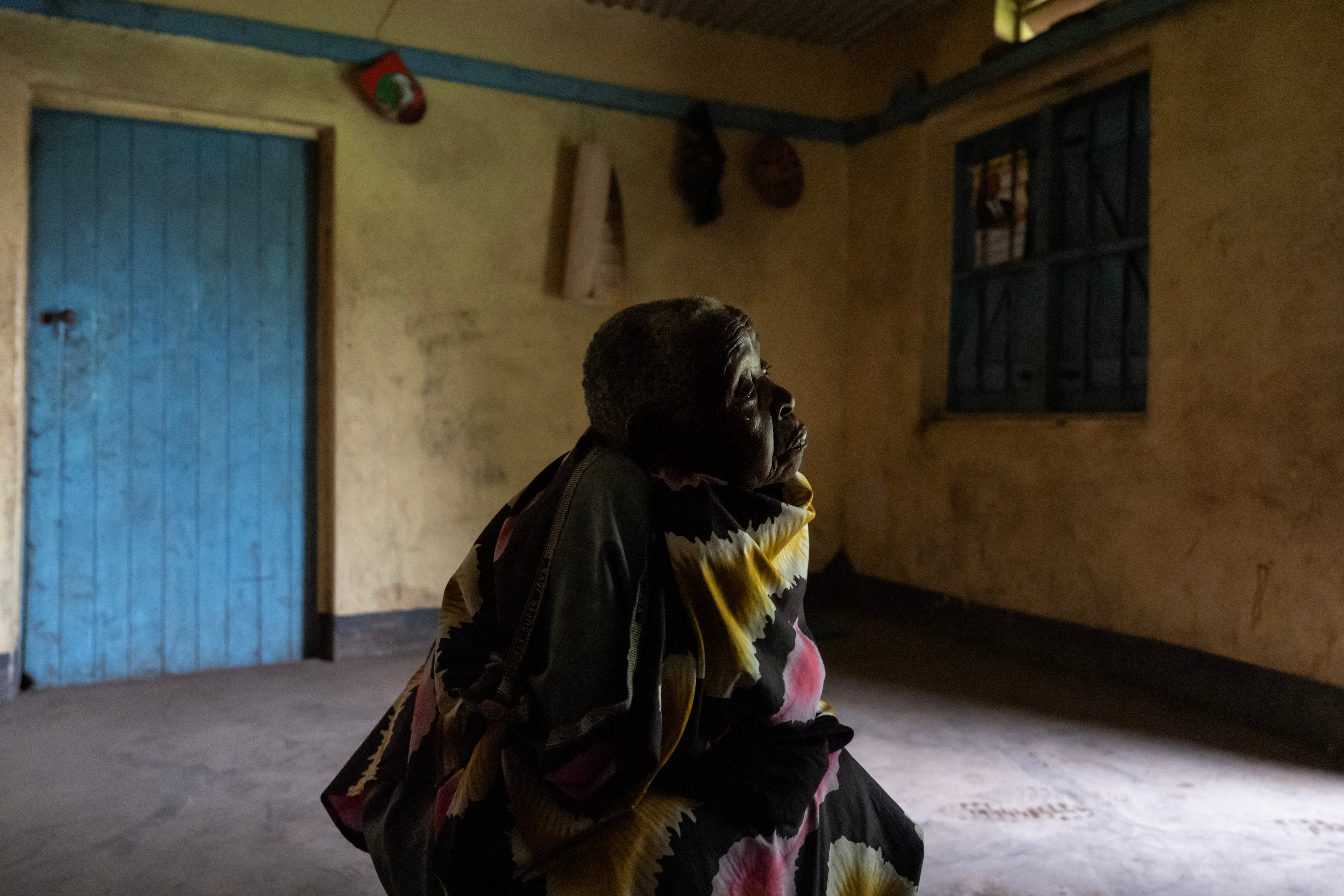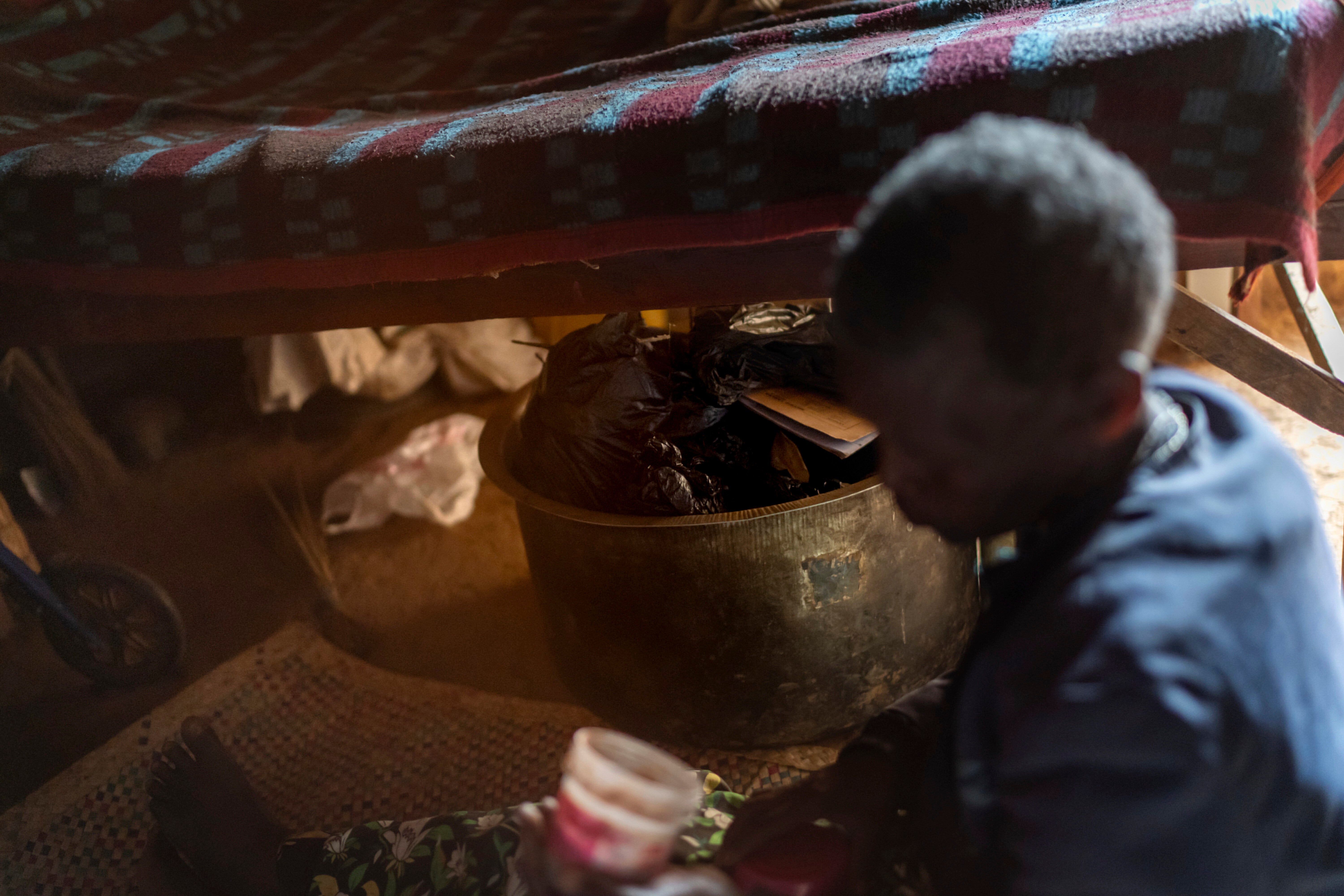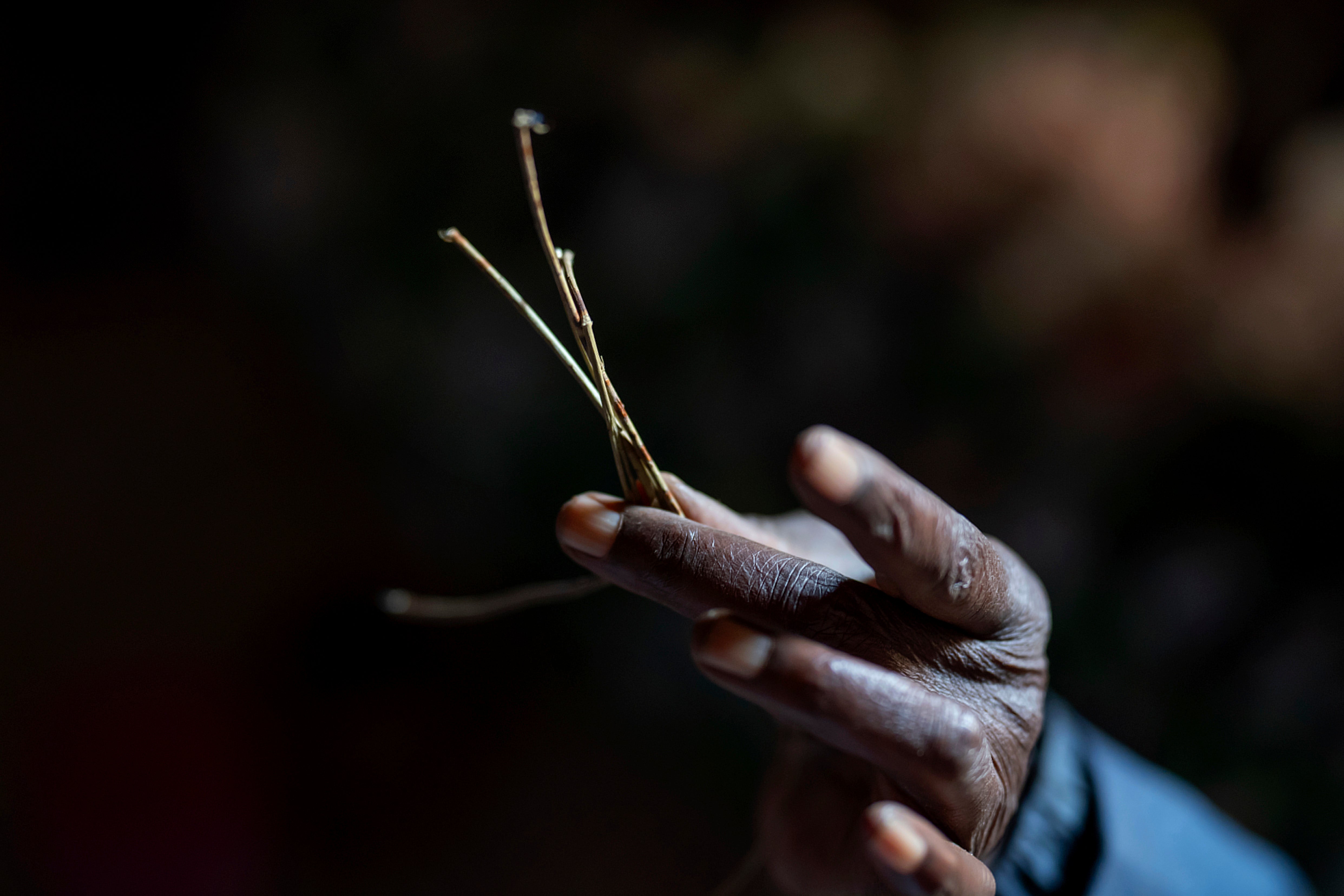An 81-year-old woman was brutally beaten by her neighbours in Uganda, who accused her of witchcraft and blamed her for a prolonged drought.
Ayder Kanyomushana, a stooped octogenarian, became the target of desperate villagers after months of dry fields left their onion, potato, and bean crops withered.
Her attackers believed that the pain inflicted upon her would force tears, which in turn would bring the much-needed rain.
“They almost killed me,” Ms Kanyomushana recounted.
“It was really terrible.”

Such accusations of witchcraft are a grim reality in parts of Africa, frequently leading to violence, banishment, and even death, with older people disproportionately affected.
As the continent’s elderly population continues to grow, there are fears that this disturbing trend will escalate.
Advocates have noted a rise in cases where the accused suffers from dementia, a condition often misunderstood in the region.
Regardless of the underlying reasons for targeting, the consequences for victims are consistently devastating.
Three years on from the initial assault, Ms Kanyomushana continues to face persecution. The fact that the drought broke and rain fell shortly after her beating only served to solidify the villagers’ beliefs. Just months ago, she was again targeted, with a group destroying her garden.
“See what we’ll do to you,” she says one boy threatened.
Reach One Touch One Ministries intervened to get Ms Kanyomushana out of her home while they confronted villagers. They warned they would take those involved to court and that they could face prison time.
Ms Kanyomushana is not sure how it all started. She wonders if it might have been a local woman she says has long hated her, jealous over the sweet potatoes she grows.
“Sometimes they just point a finger,” says Norah Makubuya, a project manager at Reach One Touch One. “They just say, ‘It’s that person.’”

Before the problems began, Ms Kanyomushana says a piece of bark cloth – a fabric made from the pounded bark of trees – went missing from her small home. She thinks someone took it to a local witch doctor to have it looked at and determine if she was guilty.
The witch doctor who was consulted was Fredianah Tibeijuka, who is in her 70s and says she was born with a gift to heal. In her small home, in a stout metal basket beneath a lofted bed are the tools of her trade – a jumble of twigs and roots and herbs.
“This is to help people give birth,” she says as she unscrews a jar’s pink cap. “This is to help people that have swollen body parts,” she says pinching at something else.
“This stick, I burn it,” she says, an antidote to make poor people become rich.
She cannot answer why she hasn’t grown rich from the same stick and she doesn’t know why so many of those who are accused of witchery happen to be older people like her. All she is sure of is that she didn’t get it wrong in branding Ms Kanyomushana a witch.
“I’m telling you and get it right,” she says sternly.
“That woman is a witch. She is a really, really bad person. She deserves to die. I cannot help anyone who is a witch. I curse them.”
Similar stories repeat around Africa.
Leo Igwe, a 54-year-old Nigerian who started Advocacy for Alleged Witches to help those facing accusations, says more than 70 per cent of the cases his organisation receives involve older people.
Mr Igwe says witchcraft accusations are also used sometimes by families looking for an excuse to dump an elder they no longer want to be saddled with caring for.

The cases are about evenly split between men and women, but Mr Igwe says women suffer the worst outcomes, including being mobbed, brutally injured and even killed.
Witchcraft accusations are not unique to Africa, nor to older people, and progress has been made in many parts of the continent in addressing the issue. Nonetheless, supernatural beliefs are widespread and some find them a catch-all explanation for life’s ills. Even some who are hurt by accusations find it hard to let go of their belief in the occult.
Alice Mary Nasanga, who is about 70, was banished by some members of her family after a brother claimed he survived her witchery. She says he went to money-hungry witch doctors who affirmed his accusation and that nearly everyone went along with what he said.
“He made up a story and everyone believed him,” she says.
In the next room, Ms Nasanga’s 30-year-old son lies on a dirty concrete floor, naked and moaning. He’s steadily deteriorated since getting malaria and can no longer speak.
Ms Nasanga says she looks at him and can’t help wondering if he might be under a spell. Witchcraft, she says, may not just be the cause of his illness but the only thing that can save him.
Data on witchcraft accusations is sparse, making it difficult to say whether the problem is any better or worse than the past. But Mr Igwe says it tends to follow the ebbs and flows of the economy, with cases increasing during downturns, as parts of Africa are in today.
“When people are not able to meet their material needs they take a leap into the supernatural looking for the solutions,” he says.
“Witchcraft becomes handy.”
As Africa becomes home to more and more older people, advocates for accused witches say they’re seeing a greater number of cases involving people with dementia. Mr Igwe’s organisation says at least 30-40 per cent of the cases it handles involve cognitive issues.
Dr. Temitope Farombi, a geriatric neurologist in Ibadan, Nigeria, started a “Dementia Not Witchcraft” campaign six years ago to educate the public about the disease. She was prompted by incidents involving older people who wandered from their homes and then were attacked by someone who perceived them as a supernatural threat.
“You started seeing older adults being in harm’s way,” says the 44-year-old doctor, “and people hunting them, beating them, burning them, stoning them.”
Education is also at the heart of the work being done by Berrie Holtzhausen, the founder of Alzheimer’s Dementia Namibia. He has gone village to village and tribe to tribe in Namibia, both helping those accused of witchcraft and trying to prevent future cases by teaching people about brain disorders like dementia that may spark accusations.
Because there is so little familiarity with dementia, witchcraft becomes a go-to explanation for out-of-the-ordinary behaviors another villager might exhibit.
“Why can’t they find their way back from the river? Why are they talking to themselves at night? Why are they undressing themselves and walking between villages?” Mr Holtzhausen says, mimicking the questions he hears.
“If you are turning gray, you are a witch.”
Mr Holtzhausen, 68, is a former pastor who began working with dementia patients about 15 years ago. The work has taken on a new dimension since he, too, was diagnosed with Alzheimer’s disease about four years ago.
He has noticed a progression of the disease since his diagnosis. One time, he walked off from a store with a pair of glasses without paying for them. Sometimes he notices himself getting angry or having bad dreams. Other times, he struggles to find a word.
Still, he plans to continue his advocacy as long as he is able.
“I think this is what’s keeping me alive,” he says.
Discussion about this post